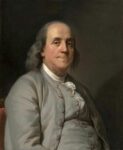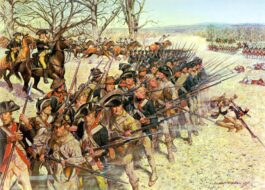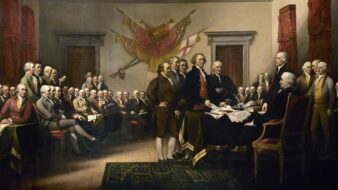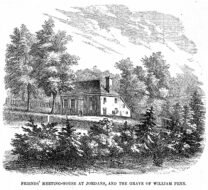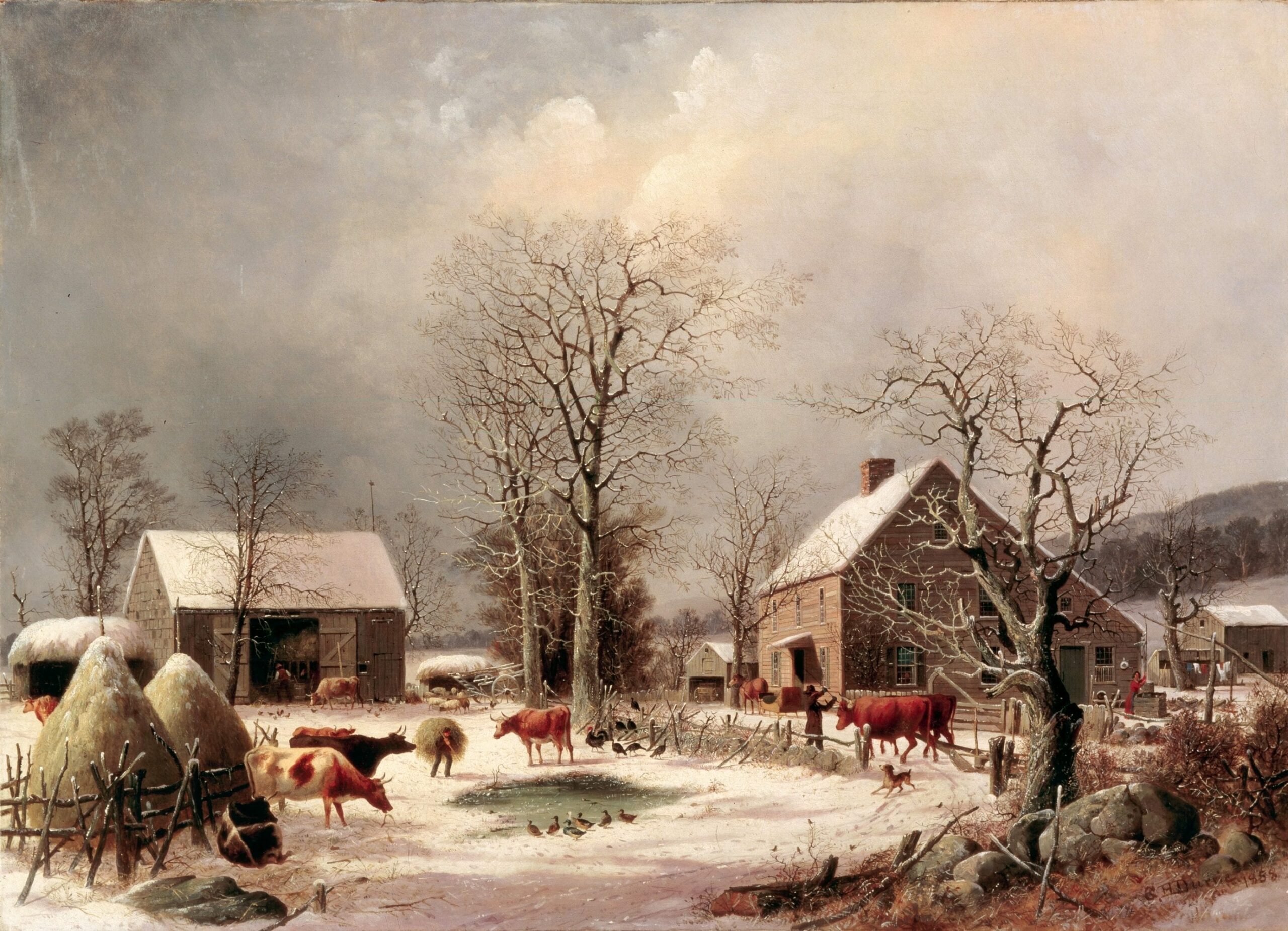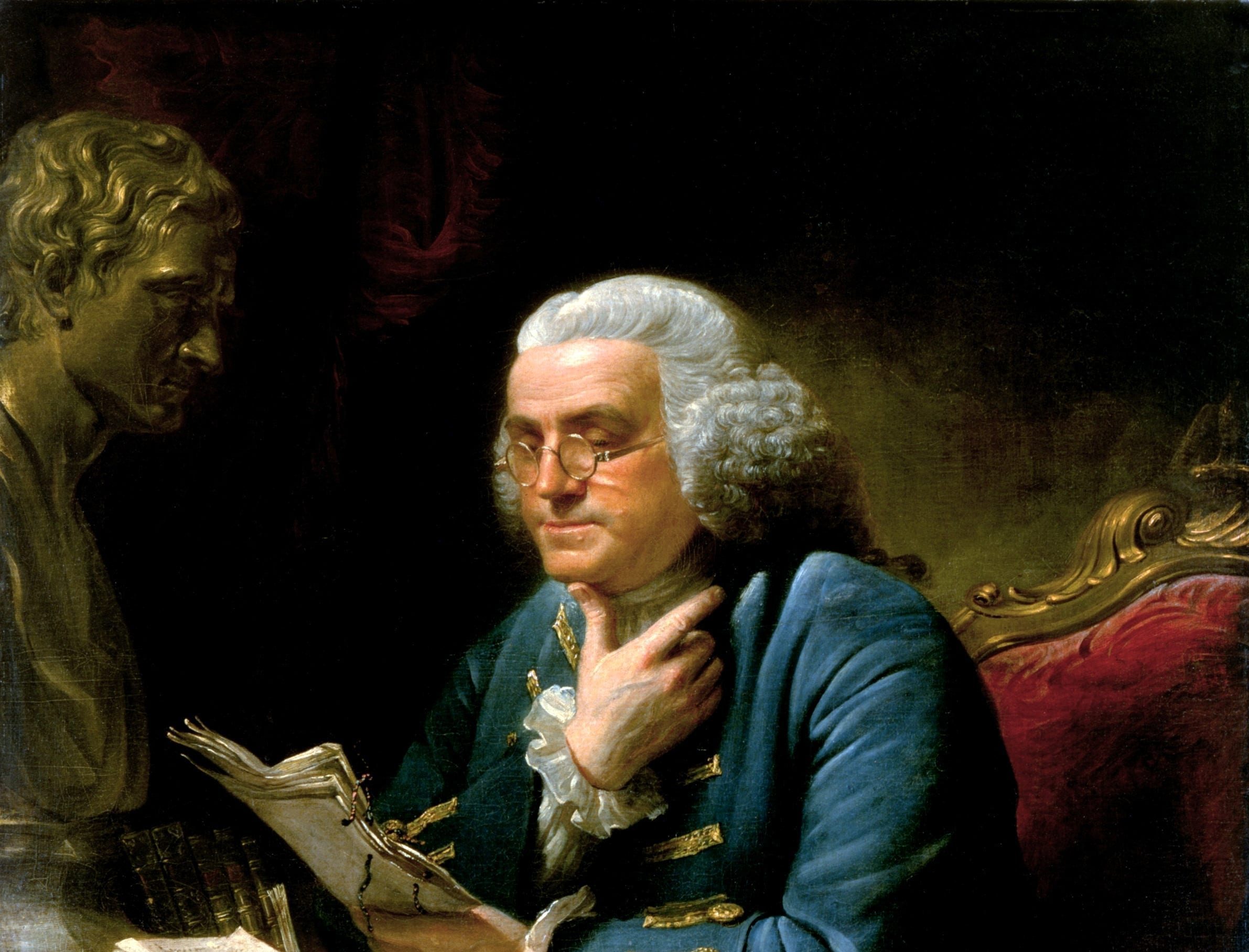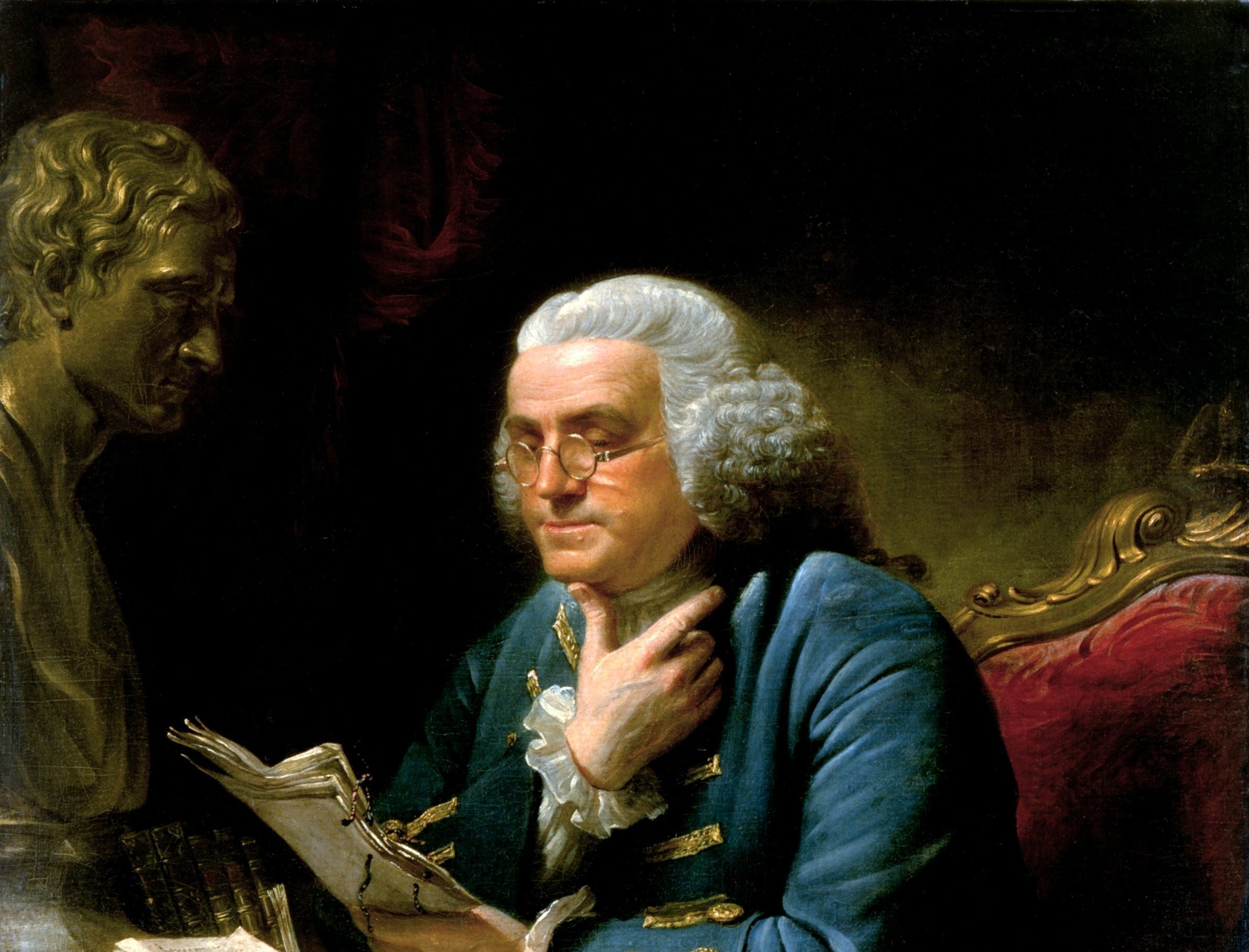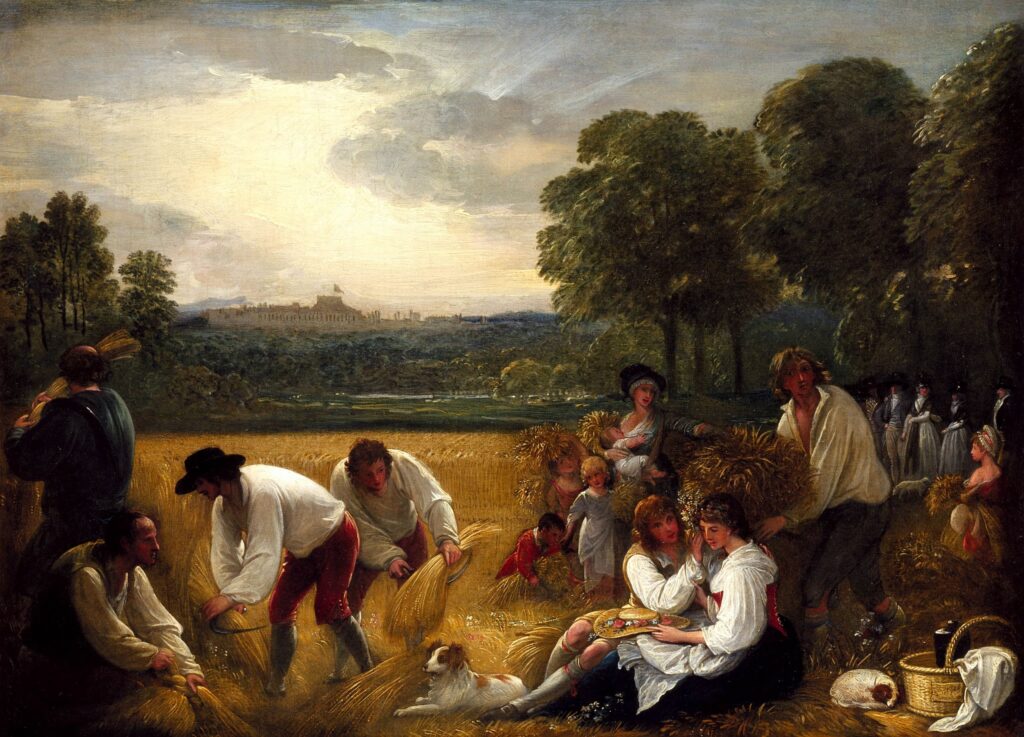
No study questions
No related resources
A Declaration of Rights, and the Constitution and Form of Government agreed to by the Delegates of Maryland, in Free and Full Convention Assembled.
A DECLARATION OF RIGHTS, &C.
THE parliament of Great Britain, by a declaratory act, having assumed a right to make laws to bind the Colonies in all cases whatsoever, and, in pursuance of such claim, endeavoured, by force of arms, to subjugate the United Colonies to an unconditional submission to their will and power, and having at length constrained them to declare themselves independent States, and to assume government under the authority of the people; Therefore we, the Delegates of Maryland, in free and full Convention assembled, taking into our most serious consideration the best means of establishing a good Constitution in this State, for the sure foundation and more permanent security thereof, declare,
I. That all government of right originates from the people, is founded in compact only, and instituted solely for the good of the whole.
II. That the people of this State ought to have the sole and exclusive right of regulating the internal government and police thereof.
III. That the inhabitants of Maryland are entitled to the common lawof England, and the trial by Jury, according that law, and to the benefit of such of the English statutes, as existed at the time of their first emigration, and which, by experience, have been found applicable to their local and other circumstances, and of such others as have been since made in England, or Great Britain, and have been introduced, used and practiced by the courts of law or equity; and also to acts of Assembly, in force on the first of June seventeen hundred and seventy-four, except such as may have since expired, or have been or may be altered by facts of Convention, or this Declaration of Rights-subject, nevertheless, to the revision of, and amendment or repeal by, the Legislature of this State: and the inhabitants of Maryland are also entitled to all property, derived to them, from or under the Charter, granted by his Majesty Charles I. to Cæcilius Calvert, Baron of Baltimore.
IV. That all persons invested with the legislative or executive powers of government are the trustees of the public, and, as such, accountable for their conduct; wherefore, whenever the ends of government are perverted, and public liberty manifestly endangered, and all other means of redress are ineffectual, the people may, and of right ought, to reform the old or establish a new government. The doctrine of non-resistance, against arbitrary power and oppression, is absurd, slavish, and destructive of the good and happiness of mankind.
V. That the right in the people to participate in the Legislature is the best security of liberty, and the foundation of all free government; for this purpose, elections ought to be free and frequent, and every man, having property in, a common interest with, and an attachment to the community, ought to have a right of suffrage.
VI. That the legislative, executive and judicial powers of government, ought to be forever separate and distinct from each other.
VII. That no power of suspending laws, or the execution of laws, unless by or derived from the Legislature, ought to be exercised or allowed.
VIII. That freedom of speech and debates, or proceedings in the Legislature, ought not to be impeached in any other court or judicature.
IX. That a place for the meeting of the Legislature ought to be fixed, the most convenient to the members thereof, and to the depository of public records; and the Legislature ought not to be convened or held at any other place, but from evident necessity.
X. That, for redress of grievances, and for amending, strengthening and preserving the laws, the Legislature ought to be frequently convened.
XI. That every man hath a right to petition the Legislature, for the redress of grievances, in a peaceable and orderly manner.
XII. That no aid, charge, tax, fee, or fees, ought to be set, rated, or levied, under any presence, without consent of the Legislature.
XIII. That the levying taxes by the poll is grievous and oppressive, and ought to be abolished; that paupers ought not to be assessed for the support of government; but every other person in the State ought to contribute his proportion of public taxes, for the support of government, according to his actual worth, in real or personal property, within the State; yet fines, duties, or taxes, may properly and justly be imposed or laid, with a political view, for the good government and benefit of the community.
XIV. That sanguinary laws ought to be avoided, as far as is Consistent with the safety of the State: and no law, to inflict cruel and unusual pains and penalties, ought to be made in any case, or at any time hereafter.
XV. That retrospective laws, punishing facts committed before the existence of such laws, and by them only declared criminal, are oppressive, unjust, and incompatible with liberty; wherefore no ex post facto law ought to be made.
XVI. That no law, to attains particular persons of treason or felony, ought to be made in any case, or at any time hereafter.
XVII. That every freeman, for any injury done him in his person or property, ought to have remedy, by the course of the law of the land, and ought to have justice and right freely without sale, fully without any denial, and speedily without delay, according to the law of the land.
XVIII. That the trial of facts where they arise, is one of the greatest securities of the lives, liberties and estates of the people.
XIX. That, in all criminal prosecutions, every man hath a right to be informed of the accusation against him; to have a copy of the indictment or charge in due time (if required) to prepare for his defence; to be allowed counsel; to be confronted with the witnesses against him; to have process for his witnesses; to examine the witnesses, for and against him, on oath; and to a speedy trial by an impartial jury, without whose unanimous consent he ought not to be found guilty.
XX. That no man ought to be compelled to give evidence against himself, in a common court of law, or in any other court, but in such cases as have been usually practiced in this State, or may hereafter be directed by the Legislature.
XXI. That no freeman ought to be taken, or imprisoned, or disseized of his freehold, liberties, or privileges, or outlawed, or exiled, or in any manner destroyed, or deprived of his life, liberty, or property, but by the judgment of his peers, or by the law of the land.
XXII. That excessive bail ought not to be required, nor excessive fines imposed, nor cruel or unusual punishments inflicted, by the courts of law.
XXIII. That all warrants, without oath or affirmation, to search suspected places, or to seize any person or property, are grievous and oppressive; and all general warrants-to search suspected places, or to apprehend suspected persons, without naming or describing the place, or the person in special-are illegal, and ought not to be granted.
XXIV. That there ought to be no forfeiture of any part of the estate of any person, for any crime except murder, or treason against the State, and then only on conviction and attainder.
XXV. That a well-regulated militia is the proper and natural defence of a free government.
XXVI. That standing armies are dangerous to liberty, and ought not to be raised or kept up, without consent of the Legislature.
XXVII. That in all cases, and at all times, the military ought to be under strict subordination to and control of the civil power.
XXVIII. That no soldier ought to be quartered in any house, in time of peace, without the consent of the owner; and in time of war, in such manner only, as the Legislature shall direct,
XXIX. That no person, except regular soldiers, mariners, and marines in the service of this State, or militia when in actual service, ought in any case to be subject to or punishable by martial law.
XXX. That the independency and uprightness of Judges are essential to the impartial administration of Justice, and a great security to the rightsand liberties of the people; wherefore the Chancellor and Judges ought to hold commissions during good behaviour; and the said Chancellor and Judges shall be removed for misbehaviour, on conviction in a court of law, and may be removed by the Governor, upon the address of the General Assembly; Provided,That two-thirds of all the members of each House concur in such address. That salaries, liberal, but not profuse, ought to be secured to the Chancellor and the Judges, during the continuance of their Commissions, in such manner, and at such times, as the Legislature shall hereafter direct, upon consideration of the circumstances of this State. No Chancellor or Judge ought to hold any other office, civil or military, or receive fees or perquisites of any kind.
XXXI. That a long continuance in the first executive departments of power or trust, is dangerous to liberty; a rotation, therefore, in those departments, is one of the best securities of permanent freedom.
XXXII. That no person ought to hold, at the same time, more than one office of profit, nor ought any person. in public trust, to receive any present from any foreign prince or state, or from the United States, or any of them, without the approbation of this State.
XXXIII. That, as it is the duty of every man to worship God in suchmanner as he thinks most acceptable to him; all persons, professing the Christian religion, are equally entitled to protection in their religious liberty; wherefore no person ought by any law to be molested in his person or estate on account of his religious persuasion or profession, or for his religious practice; unless, under colour of religion, any man shall disturb the good order, peace or safety of the State, or shall infringe the laws of morality, or injure others, in their natural, civil, or religious rights; nor ought any person to be compelled to frequent or maintain, or contribute, unless on contract, to maintain any particular place of worship, or any particular ministry; yet the Legislature may, in their discretion, lay a general and equal tax for the support of the Christian religion; leaving to each individual the power of appointing the payment over of the money, collected from him, to the support of any particular place of worship or minister, or for the benefit of the poor of his own denomination, or the poor in general of any particular county: but the churches, chapels, glebes, and all other property now belonging to the church of England, ought to remain to the church of England forever. And all acts of Assembly, lately passed, for collecting monies for building or repairing particular churches or chapels of ease, shall continue in force, and be executed, unless the Legislature shall, by act, supersede or repeal the same: but no county court shall assess any quantity of tobacco, or sum of money, hereafter, on the application of any vestrymen or church-wardens; and every encumbent of the church of England, who hath remained in his parish, and performed his duty, shall be entitled to receive the provision and support established by the act, entitled “An act for the support of the clergy of the church of England, in this Province,” till the November court of this present year to be held for the county in which his parish shall lie, or partly lie, or for such time as he hath remained in his parish, and performed his duty.
XXXIV. That every gift, sale, or devise of lands, to any minister, public teacher, or preacher of the gospel, as such, or to any religious sect, order or denomination, or to or for the support, use or benefit of, or in trust for, any minister, public teacher, or preacher of the gospel, as such, or any religious sect, order or denomination–and every gift or sale of goods, or chattels, to go in succession, or to take place after the death of the seller or donor, or to or for such support, use or benefit–and also every devise of goods or chattels to or for the support, use or benefit of any minister, public teacher, or preacher of the gospel, as such, or any religious sect, order, or denomination, without the leave of the Legislature, shall be void; except always any sale, gift, lease or devise of any quantity of land, not exceeding two acres, for a church, meeting, or other house of worship, and for a burying-ground, which shall be improved, enjoyed or used only for such purpose–or such sale, gift, lease, or devise, shall be void.
XXXV. That no other test or qualification ought to be required, on admission to any office of trust or profit, than such oath of support and fidelity to this State, and such oath of office, as shall be directed by this Convention or the Legislature of this State, and a declaration of a belief in the Christian religion.
XXXVI. That the manner of administering an oath to any person, ought to be such, as those of the religious persuasion, profession, or denomination, of which such person is one, generally esteem the most effectual confirmation, by the attestation of the Divine Being. And that the people called Quakers, those called Dunkers, and those called Menonists, holding it unlawful to take an oath on any occasion, ought to be allowed to make their solemn affirmation, in the manner that Quakers have been heretofore allowed to affirm; and to be of the same avail as an oath, in all such cases, as the affirmation of Quakers hath been allowed and accepted within this State, instead of an oath. And further, on such affirmation, warrants to search for stolen goods, or for the apprehension or commitment of offenders, ought to be granted, or security for the peace awarded, and Quakers, Dunkers or Menonists ought also, on their solemn affirmation as aforesaid, to be admitted as witnesses, in all criminal cases not capital.
XXXVII. That the city of Annapolis ought to have all its rights, privileges and benefits, agreeable to its Charter, and the acts of Assembly confirming and regulating the same, subject nevertheless to such alteration as may be made by this Convention, or any future legislature.
XXXVIII. That the liberty of the press ought to be inviolably preserved.
XXXIX. That monopolies are odious, contrary to the spirit of a free government, and the principles of commerce; and ought not to be suffered. XL. That no title of nobility, or hereditary honours, ought to be granted by this State.
XLI. That the subsisting resolves of this and the several Conventions held for this Colony, ought to be in force as laws, unless altered by this Convention, or the Legislature of this State.
XLII. That this Declaration of Rights, or the Form of Government, to be established by this Convention, or any part of either of them, ought not to be altered, changed or abolished, by the Legislature of this State, but in such manner as this Convention shall prescribe and direct.
This Declaration of Rights was assented to, and passed, in Convention of the Delegates of the freemen of Maryland, begun and held at Annapolis, the 14th day of August, A. D. 1776.
By order of the Convention.
MAT. TILGHMAN, President.
THE CONSTITUTION, OR FORM OF GOVERNMENT, &C.
I. THAT the Legislature consist of two distinct branches, a Senate and House of Delegates, which shall be styled, The General Assembly of Maryland.
II. That the House of Delegates shall be chosen in the following manner: All freemen, above twenty-one years of age, having a freehold of fifty acres of land, in the county in which they offer to vote, and residing therein-and all freemen, having property in this State above the value of thirty pounds current money, and having resided in the county, in which they offer to vote, one whole year next preceding the election, shall have a right of suffrage, in the election of Delegates for such county: and all freemen, so qualified, shall, on the first Monday of October, seventeen hundred and seventy-seven and on the same day in every year thereafter, assemble in the counties, in which they are respectively qualified to vote, at the court-house, in the said counties; or at such other place as the Legislature shall direct; and, when assembled, they shall proceed to elect, viva voce, four Delegates, for their respective counties, of the most wise, sensible, and discreet of the people, residents in the county where they are to be chosen, one whole year next preceding the election, above twenty-one years of age, and having, in the State, real or personal property above the value of five hundred pounds current money; and upon the final casting of the polls, the four persons who shall appear to have the greatest number of legal votes shall be declared and returned duly elected for their respective counties.
III. That the Sheriff of each county, or, in case of sickness, his Deputy (summoning two Justices of the county, who are required to attend, for the preservation of the peace) shall be the judges of the election, and may adjourn from day to day, if necessary, till the same be finished, so that the whole election shall be concluded in four days; and shall make his return thereof, under his hand, to the Chancellor of this State for the time being.
IV. That all persons qualified, by the charter of the city of Annapolis, to vote for Burgesses, shall, on the same first Monday of October, seventeen hundred and seventy-seven, and on the same day in every year forever thereafter, elect, viva voce, by a majority of votes, two Delegates, qualified agreeable to the said charter; that the Mayor, Recorder, and Aldermen of the said city, or any three of them, be judges of the election, appoint the place in the said city for holding the same, and may adjourn from day to day, as aforesaid, and shall make return thereof, as aforesaid: but the inhabitants of the said city shall not be entitled to vote for Delegates for Anne-Arundel county, unless they have a freehold of fifty acres of land in the county distinct from the City.
V. That all persons, inhabitants of Baltimore town, and having the same qualifications as electors in the county, shall, on the same first Monday in October, seventeen hundred and seventy-seven, and on the same day in every year forever thereafter, at such place in the said town as the Judges shall appoint, elect, viva voce, by a majority of votes, two Delegates, qualified as aforesaid: but if the said inhabitants of the town shall so decrease, as that a number of persons, having a right of suffrage therein, shall have been, for the space of seven years successively, less than one half the number of voters in some one county in this State, such town shall thenceforward cease to send two Delegates or Representatives to the House of Delegates, until the said town shall have one half of the number of voters in some one county in this State.
VI. That the Commissioners of the said town, or any three or more of them, for the time being, shall be judges of the said election, and may adjourn, as aforesaid, and shall mate return thereof, as aforesaid: but the inhabitants of the said town shall not be entitled to vote for, or be elected, Delegates for Baltimore county: neither shall the inhabitants of Baltimore county, out of the limits of Baltimore town, be entitled to vote for, or be elected, Delegates for the said town.
VII. That on refusal, death, disqualification, resignation, or removal out of this State of any Delegate, or on his becoming Governor, or member of the Council, a warrant of election shall issue by the Speaker, for the election of another in his place; of which ten days’ notice, at least, (excluding the day of notice, and the day of election) shall be given.
VIII. That not less than a majority of the Delegates, with their Speaker (to be chosen by them, by ballot) constitute a House, for the transaction of any business other than that of adjourning.
IX. That the House of Delegates shall judge of the elections and qualifications of Delegates.
X. That the House of Delegates may originate all money bills, propose bills to the Senate, or receive those offered by that body; and assent, dissent, or propose amendments; that they may inquire on the oath of witnesses, into all complaints, grievances, and offences, as the grand inquest of this State; and may commit any person, for any crime, to the public jail, there to remain till he be discharged by due course of law. They may expel any member, for a great misdemeanor, but not a second time for the same cause. They may examine and pass all accounts of the State, relating either to the collection or expenditure of the revenue, or appoint auditors, to state and adjust the same. They may call for all public or official papers and records, and send for persons, whom they may judge necessary in the course of their inquiries, concerning affairs relating to the public interest; and may direct all office bonds (which shall be made payable to the State) to be sued for any breach of duty.
XI. That the Senate may be at full and perfect liberty to exercise their judgment in passing laws–and that they may not be compelled by the House of Delegates, either to reject a money bill, which the emergency of affairs may require, or to assent to some other act of legislation, in their conscience and judgment injurious to the public welfare–the House of Delegates shall not on any occasion, or under any presence annex to, or blend with a money bill, any matter, clause, or thing, not immediately relating to, and necessary for the imposing, assessing, levying, or applying the taxes or supplies, to be raised for the support of government, or the current expenses of the State: and to prevent altercation about such bills, it is declared, that no bill, imposing duties or customs for the mere regulation of commerce, or inflicting fines for the reformation of morals, or to enforce the execution of the laws, by which an incidental revenue may arise, shall be accounted a money bill: but every bill, assessing, levying, or applying taxes or supplies, for the support of government, or the current expenses of the State, or appropriating money in the treasury, shall be deemed a money bill.
XII. That the House of Delegates may punish, by imprisonment. any person who shall be guilty of a contempt in their view, by any disorderly or riotous behaviour, or by threats to, or abuse of their members, or by any obstruction to their proceedings. They may also punish, by imprisonment, any person who shall be guilty of a breach of privilege, by arresting on civil process, or by assaulting any of their members, during their sitting, or on their way to, or return from the House of Delegates, or by any assault of, or obstruction to their officers, in the execution of any order or process, or by assaulting or obstructing any witness, or any other person, attending on, or on their way to or from the House, or by rescuing any person committed by the House: and the Senate may exercise the same power, in similar cases.
XIII. That the Treasurers (one for the western, and another for the eastern shore) and the Commissioners of the Loan Office, may be appointed by the House of Delegates, during their pleasure; and in case of refusal, death, resignation, disqualification, or removal out of the State, of any of the said Commissioners or Treasurers, in the recess of the General Assembly, the governor, with the advice of the Council, may appoint and commission a fit and proper person to such vacant office, to hold the same until the meeting of the next General Assembly.
XIV. That the Senate be chosen in the following manner: All persons, qualified as aforesaid to vote for county Delegates, shall, on the first Monday of September, 1781, and on the same day in every fifth year forever thereafter, elect, viva voce, by a majority of votes, two persons for their respective counties (qualified as aforesaid to be elected county Delegates) to be electors of the Senate; and the Sheriff of each county, or, in case of sickness, his Deputy (summoning two Justices of the county, who are required to attend, for the preservation of the peace,) shall hold and be judge of the said election, and make return thereof, as aforesaid. And all persons, qualified as aforesaid, to vote for Delegates for the city of Annapolis and Baltimore town, shall, on the same first Monday of September, 1781, and on the same day in every fifth year forever thereafter, elect, viva voce, by a majority of votes, one person for the said city and town respectively, qualified as aforesaid to be elected a Delegate for the said city and town respectively; the said election to be held in the same manner, as the election of Delegates for the said city and town; the right to elect the said elector, with respect to Baltimore town, to continue as long as the right to elect Delegates for the said town.
XV. That the said electors of the Senate meet at the city of Annapolis, or such other place as shall be appointed for convening the legislature, on the third Monday in September, 1781, and on the same day in every fifth year forever thereafter, and they, or any twenty-four of them so met, shall proceed to elect, by ballot, either out of their own body, or the people at large, fifteen Senators (nine of whom to be residents on the western, and six to be residents on the eastern shore) men of the most wisdom, experience and virtue, above twenty-five years of age, residents of the State above three whole years next preceding the election, and having real and personal property above the value of one thousand pounds current money.
XVI That the Senators shall be balloted for, at one and the same time, and out of the gentlemen residents of the western shore, who shall be proposed as Senators, the nine who shall, on striking the ballots, appear to have the greatest numbers in their favour, shall be accordingly declared and returned duly elected: and out of the gentlemen residents of the eastern shore, who shall be proposed as Senators, the six who shall, on striking the ballots, appear to have the greatest number in their favour, shall be accordingly declared and returned duly elected: and if two or more on the same shore shall have an equal number of ballots in their favour, by which the choice shall not be determined on the first ballot, then the electors shall again ballot, before they separate; in which they shall be confined to the persons who on the first ballot shall have an equal number: and they who shall have the greatest number in their favour on the second ballot, shall be accordingly declared and returned duly elected: and if the whole number should not thus be made up, because of an equal number, on the second ballot, still being in favour of two or more persons, then the election shall be determined by lot, between those who have equal numbers; which proceedings of the electors shall be certified under their hands, and returned to the Chancellor for the time being.
XVII. That the electors of Senators shall judge of the qualifications and elections of members of their body; and, on a contested election, shall admit to a seat, as an elector, such qualified person as shall appear to them to have the greatest number of legal votes in his favour.
XVIII. That the electors, immediately on their meeting, and before they proceed to the election of Senators, take such oath of support and fidelity to this State, as this Convention, or the Legislature, shall direct; and also an oath ” to elect without favour, affection, partiality, or prejudice, such persons for Senators, as they, in their judgment and conscience, believe best qualified for the office.”
XIX. That in case of refusal, death, resignation, disqualification, or removal out of this State, of any Senator, or on his becoming Governor, or a member of the Council, the Senate shall, immediately thereupon, or at their next meeting thereafter, elect by ballot (in the same manner as the electors are above directed to choose Senators) another person in his place, for the residue of the said term of five years.
XX. That not less than a majority of the Senate, with their President (to be chosen by them, by ballot) shall constitute a House, for the transacting any business, other than that of adjourning.
XXI. That the Senate shall judge of the Elections and qualifications of Senators.
XXII. That the Senate may originate any other, except money bills, to which their assent or dissent only shall be given; and may receive any other bills from the House of Delegates, and assent, dissent, or propose amendments.
XXIII. That the General Assembly meet annually, on the first Monday of November, and if necessary, oftener.
XXIV. That each House shall appoint its own officers, and settle its own rules of proceeding.
XXV. That a person of wisdom, experience, and virtue, shall be chosen Governor, on the second Monday of November, seventeen hundred and seventy-seven, and on the second Monday in every year forever thereafter, by the joint ballot of both Houses (to be taken in each House respectively) deposited in a conference room; the boxes to be examined by a joint committee of both Houses, and the numbers severally reported, that the appointment may be entered; which mode of taking the joint ballot of both Houses shall be adopted in all cases. But if two or more shall have an equal number of ballots in their favour, by which the choice shall not be determined on the first ballot, then a second ballot shall be taken, which shall be confined to the persons who, on the first ballot, shall have had an equal number; and, if the ballots should again be equal between two or more persons, then the election of the Governor shall be determined by lot, between those who have equal numbers: and if the person chosen Governor shall die, resign, move out of the State, or refuse to act, (the-General Assembly sitting) the Senate and House of Delegates shall, immediately thereupon, proceed to a new choice, in manner aforesaid.
XXVI. That the Senators and Delegates, on the second Tuesday of November, 1777, and annually on the second Tuesday of November forever thereafter, elect by Joint ballot (in the same manner as Senators are directed to be chosen) five of the most sensible, discreet, and experienced men, above twenty-five years of age, residents in the State above three years next preceding the election, and having therein a freehold of lands and tenements, above the value of one thousand pounds current money, to be the Council to the Governor, whose proceedings shall be always entered on record, to any part whereof any member may enter his dissent; and their advice, if so required by the Governor, or any member of the Council, shall be given in writing, and signed by the members giving the same respectively: which proceedings of the Council shall be laid before the Senate, or House of Delegates, when called for by them or either of them. The Council may appoint their own Clerk, who shall take such oath of suport and fidelity to this State, as this Convention, or the Legislature, shall direct; and of secrecy, in such matters as he shall be directed by the board to keep secret.
XXVII. That the Delegates to Congress, from this State, shall be chosen annually, or superseded in the mean time by the joint ballot of both Houses of Assembly; and that there be a rotation, in such manner, that at least two of the number be annually changed; and no person shall be capable of being a Delegate to Congress for more than three in any term of six years; and no person, who holds any office of profit in the gift of Congress, shall be eligible to sit in Congress; but if appointed to any such office, his seat shall be thereby vacated. That no person, unless above twenty-one years of age, and a resident in the State more than five years next preceding the election, and having real and personal estate in this State above the value of one thousand pounds current money, shall be eligible to sit in Congress.
XXVIII. That the Senators and Delegates, immediately on their annual meeting, and before they proceed to any business, and every person, hereafter elected a Senator or Delegate, before he acts as such, shall take an oath of support and fidelity to this State, as aforesaid; and before the election of a governor, or members of the Council, shall take an oath, ” elect without favour, affection, partiality, or prejudice, such person as Governor, or member of the Council, as they, in their judgment and conscience, believe best qualified for the office.”
XXIX. That the Senate and Delegates may adjourn themselves respectively: but if the two Houses should not agree on the same time, but adjourn to different days, then shall the Governor appoint and notify one of those days, or some day between, and the Assembly shall then meet and be held accordingly; and he shall, if necessary, by advice of the Council, call them before the time, to which they shall in any manner be adjourned, on giving not less than ten days’ notice thereof; but the Governor shall not adjourn the Assembly, otherwise than as aforesaid, nor prorogue or dissolve it, at any time.
XXX. That no person, unless above twenty-five years of age, a resident in this State above five years next preceding the election- and having in the State real and personal property, above the value of five thousand pounds, current money, (one thousand pounds whereof, at least, to be freehold estate) shall be eligible as governor.
XXXI. That the governor shall not continue in that office longer than three years successively, nor be eligible as Governor, until the expiration of four years after he shall have been out of that office.
XXXII. That upon the death, resignation, or removal out of this State, of the Governor, the first named of the Council, for the time being shall act as Governor, and qualify in the same manner; and shall immediately call a meeting of the General Assembly, giving not less than fourteen days’ notice of the meeting, at which meeting a Governor shall be appointed, in manner aforesaid, for the residue of the year.
XXXIII. That the Governor, by and with the advice and consent of the Council, may embody the militia; and, when embodied, shall alone have the direction thereof; and shall also have the direction of all the regular land and sea forces, under the laws of this State, (but he shall not command in person, unless advised thereto by the Council, and then, only so long as they shall approve thereof); and may alone exercise all other the executive powers of government, where the concurrence of the Council is not required, according to the laws of this State; and grant reprieves or pardons for any crime, except in such cases where the law shall otherwise direct; and may, during the recess of the General Assembly, lay embargoes, to prevent the departure of any shipping, or the exportation of any commodities, for any time not exceeding thirty days in any one year-summoning the General Assembly to meet within the time of the continuance of such embargo; and may also order and compel any vessel to ride quarantine, if such vessel, or the port from which she may have come, shall, on strong grounds, be suspected to be infected with the plague; but the Governor shall not, under any presence, exercise any power or prerogative by virtue of any law, statute, or custom of England or Great Britain.
XXXIV. That the members of the Council, or any three or more of them, when convened, shall constitute a board for the transacting of business; that the Governor, for the time being, shall preside in the Council, and be entitled to a vote, on all questions in which the Council shall be divided in opinion; and, in the absence of the Governor, the first named of the Council shall preside; and as such, shall also vote, in all cases, where the other members disagree in their opinion.
XXXV. That, in case of refusal, death, resignation, disqualification, or removal out of the State, of any person chosen a member of the council, the members thereof, immediately thereupon, or at their next meeting thereafter, shall elect by ballot another person (qualified as aforesaid) in his place, for the residue of the Year.
XXXVI. That the Council shall have power to make the Great Seal of this State, which shall be kept by the Chancellor for the time being, and affixed to all laws, commissions, grants, and other public testimonials, as has been heretofore practiced in this State.
XXXVII. That no Senator, Delegate of Assembly, or member of the Council, if he shall qualify as such, shall hold or execute any office of profit, or receive the profits of any office exercised by any other person, during the time for which he shall be elected; nor shall any Governor be capable of holding any other office of profit in this State, while he acts as such. And no person, holding a place of profit or receiving any part of the profits thereof, or receiving the profits or any part of the profits arising on any agency, for the supply of clothing or provisions for the Army or Navy, or holding any office under the United States, or any of them-or a minister, or preacher of the gospel, of any denomination-or any person, employed in the regular land service, or marine, of this or the United States-shall have a seat in the General Assembly or the Council of this State.
XXXVIII. That every Governor, Senator, Delegate to Congress or Assembly, and member of the Council, before he acts as such, shall take an oath “that he will not receive, directly or indirectly at any time, any part of the profits of any office, held by any other person during his acting in his office of Governor, Senator, Delegate to Congress or Assembly, or member of the Council, or the profits or any part of the profits arising on any agency for the supply of clothing or provisions for the Army or Navy.”
XXXIX. That if any Senator, Delegate to Congress or Assembly, or member of the Council, shall hold or execute any office of profit, or receive, directly or indirectly, at any time, the profits or any part of the profits of any office exercised by any other person, during his acting as Senator, Delegate to Congress or Assembly, or member of the Council-his seat (on conviction, in a Court of law, by the oath of two credible witnesses) shall be void; and he shall suffer the punishment of wilful and corrupt perjury, or be banished this State forever, or disqualified forever from holding any office or place of trust or profit, as the Court may judge.
XL. That the Chancellor, all Judges, the Attorney-General, Clerks of the General Court, the Clerks of the County Courts, the Registers of the Land Office, and the Registers of Wills, shall hold their commissions during good behaviour, removable only for misbehaviour, on conviction in a Court of law.
XLI. That there be a Register of Wills appointed for each county who shall be commissioned by the Governor, on the joint recommendation of the Senate and House of Delegates; and that, upon the death, resignation, disqualification, or removal out of the county of any Register of Wills, in the recess of the General Assembly the Governor, with the advice of the Council, may appoint and commission a fit and proper person to such vacant office, to hold the same until the meeting of the General Assembly.
XLII. That Sheriffs shall be elected in each county, by ballot, every third year; that is to say, two persons for the office of Sheriff for each county, the one of whom having the majority of votes, or if both have an equal number, either of them, at the discretion of the Governor, to be commissioned by the Governor for the said office; and having served for three years, such person shall be ineligible for the four years next succeeding; bond with security to be taken every year, as usual; and no Sheriff shall be qualified to act before the same is given. In case of death, refusal, resignation, disqualification, or removal out of the county before the expiration of the three years, the other person, chosen as aforesaid, shall be commissioned by the Governor to execute the said office, for the residue of the said three years, the said person giving bond and security as aforesaid: and in case of his death, refusal, resignation, disqualification, or removal out of the county, before the expiration of the said three years, the Governor, with the advice of the Council, may nominate and commission a fit and proper person to execute the said office for the residue of the said three years, the said person giving bond and security as aforesaid. The election shall be held at the same time and place appointed for the election of Delegates; and the Justices, there summoned to attend for the preservation of the peace, shall be judges thereof, and of the qualification of candidates, who shall appoint a Clerk, to take the ballots. All freemen above the age of twenty-one years, having a freehold of fifty acres of land in the county in which they offer to ballot, and residing therein–and all freemen above the age of twenty-one years, and having property in the State above the value of thirty pounds current money, and having resided in the county in which they offer to ballot one whole year next preceding the election–shall have a right of suffrage. No person to be eligible to the office of Sheriff for a county, but an inhabitant of the said county above the age of twenty-one years, and having real and personal property in the State above the value of one thousand pounds current money. The Justices aforesaid shall examine the ballots; and the two candidates properly qualified, having in each county the majority of legal ballots, shall be declared duly elected for the office of Sheriff, for such county, and returned to the Governor and Council, with a certificate of the number of ballots for each of them.
XLIII. That every person who shall offer to vote for Delegates, or for the election of the Senate, or for the Sheriff, shall (if required by any three persons qualified to vote) before he be permitted to poll, take such oath or affirmation of support and fidelity to this State, as this Conventionor the Legislature shall direct.
XLIV. That a Justice of the Peace may be eligible as a Senator, Delegate, or member of the Council, and may continue to act as a Justice of the Peace.
XLV. That no field officer of the militia be eligible as a Senator, Delegate, or member of the Council.
XLVI. That all civil officers, hereafter to be appointed for the several counties of this State, shall have been residents of the county, respectively, for which they shall be appointed, six months next before their appointment; and shall continue residents of their county, respectively, during their continuance in office.
XLVII. That the Judges of the General Court, and Justices of the County Courts, may appoint the Clerks of their respective Courts; and in case of refusal, death, resignation, disqualification, or removal out of the State, or from their respective shores, of the Clerks of the General Court, or either of them, in the vacation of the said Court–and in case of the refusal, death, resignation, disqualification, or removal out of the county, of any of the said County Clerks, in the vacation of the County Court of which he is Clerk–the Governor, with the advice of the Council, may appoint and commission a fit and proper person to such vacant office respectively, to fold the same until the meeting of the next General Court, or County Court, as the case may be.
XLVIII. That the Governor, for the time being, with the advice and consent of the Council, may appoint the Chancellor, and all Judges and Justices, the Attorney-General, Naval Officers, officers in the regular land and sea service, officers of the militia, Registers of the Land Office, Surveyors, and all other civil officers of government (Assessors, Constables, and Overseers of the roads only excepted) and may also suspend or remove any civil officer who has not a commission, during good behaviour; and may suspend any militia officer, for one month: and may also suspend or remove any regular officer in the land or sea service: and the Governor may remove or suspend any militia officer, in pursuance of the judgment of a Court Martial.
XLIX. That all civil officers of the appointment of the Governor and Council, who do not hold commissions during good behaviour, shall be appointed annually in the third week of November. But if any of them shall be reappointed, they may continue to act, without any new commission or qualification; and every officer, though not reappointed, shall continue to act, until the person who shall be appointed and commissioned in his stead shall be qualified.
L. That the Governor, every member of the Council, and every Judge and Justice, before they act as such, shall respectively take an oath, “That he will not, through favour, affection or partiality vote for any person to office; and that he will vote for such person as, in his judgment and conscience, he believes most fit and best qualified for the office; and that he has not made, nor will make. any promise or engagement to give his vote or interest in favor of any person.”
LI. That there be two Registers of the Land Office, one upon the western, and one upon the eastern shore: that short extracts of the grants and certificates of the land, on the western and eastern shores respectively, be made in separate books, at the public expense, and deposited in the offices of the said Registers, in such manner as shall hereafter be provided by the General Assembly.
LII. That every Chancellor, Judge, Register of Wills, Commissioner of the Loan Office, Attorney-General, Sheriff, Treasurer, Naval Officer, Register of the Land Office, Register of the Chancery Court, and every Clerk of the common law courts, Surveyor and Auditor of the public accounts, before he acts as such, shall take an oath “That he will not directly or indirectly receive any fee or reward, for doing his office of, but what is or shall be allowed by law; nor will, directly or indirectly, receive the profits or any part of the profits of any office held by any other person, and that he does not hold the same office in trust, or for the benefit of any other person.”
LIII. That if any Governor, Chancellor, Judge, Register of Wills, Attorney-General, Register of the Land Office, Register of the Chancery Court, or any Clerk of the common law courts, Treasurer, Naval Officer, Sheriff, Surveyor or Auditor of public accounts, shall receive, directly or indirectly, at any time, the profits, or any part of the profits of any office, held by any other person, during his acting in the office to which he is appointed; his election, appointment and commission (on conviction in a court of law by oath of two credible witnesses) shall be void; and he shall suffer the punishment for wilful and corrupt perjury, or be banished this State forev er,or disqualified forever from holding any office or place of trust or profit, as the court may adjudge.
LIV. That if any person shall give any bribe, present, or reward, or any promise, or any security for the payment or delivery of any money, or any other thing, to obtain or procure a vote to be Governor, Senator, Delegate to Congress or Assembly, member of the Council, or Judge, or to be appointed to any of the said offices, or to any office of profit or trust, now created or hereafter to be created in this State-the person giving, and the person receiving the same (on conviction in a court of law) shall be forever disqualified to hold any office of trust or profit in this State.
LV. That every person, appointed to any office of profit or trust, shall, before he enters on the execution thereof, take the following oath; to wit :–”I, A. B., do swear, that I do not hold myself bound in allegiance to the King of Great Britain, and that I will be faithful, and bear true allegiance to the State of Maryland;” and shall also subscribe a declaration of his belief in the Christian religion.
LVI. That there be a Court of Appeals, composed of persons of integrity and sound judgment in the law, whose judgment shall be final and conclusive, in all cases of appeal, from the General Court, Court of Chancery, and Court of Admiralty: that one person of integrity and sound judgment in the law, be appointed Chancellor: that three persons of integrity and sound judgment in the law, be appointed judges of the Court now called the Provincial Court; and that the same Court be hereafter called and known by the name of The General Court; which Court shall sit on the western and eastern shores, for transacting and determining the business of the respective shores, at such times and places as the future Legislature of this State shall direct and appoint.
LVII. That the style of all laws run thus; “Be it enacted by the General Assembly of Maryland:” that all public commissions and grants run thus; “The State of Maryland,” &c. and shall be signed by the Governor, and attested by the Chancellor, with the seal of the State annexed-except military commissions, which shall not be attested by the Chancellor or have the seal of the State annexed: that all writs shall run in the same style, and be attesteted, sealed and signed a usual: that all indictments shall conclude, “Against the peace, government, and dignity of the State.”
LVIII. That all penalties and forfeitures, heretofore going to the King or proprietary, shall go to the State-save only such, as the General Assembly may abolish or otherwise provide for.
LIX. That this Form of Government, and the Declaration of Rights, and no part thereof, shall be altered, changed, or abolished, unless a bill so to alter, change or abolish the same shall pass the General Assembly, and be published at least three months before a new election, and shall be confirmed by the General Assembly, after a new election of Delegates, in the first session after such new election; provided that nothing in this form of government, which relates to the eastern shore particularly, shall at any time hereafter be altered, unless for the alteration and confirmation thereof at least two-thirds of all the members of each branch of the General Assembly shall concur.
LX. That every bill passed by the General Assembly, when engrossed, shall be presented by the Speaker of the House of Delegates, in the Senate, to the Governor for the time being, who shall sign the same, and thereto affix the Great Seal, in the presence of the members of both Houses: every law shall be recorded in the General Court office of the western shore, and in due time printed, published, and certified under the Great Seal, to the several County Courts, in the same manner as hath been heretofore used in this State.
This Form of Government was assented to, and passed in Convention of the Delegates of the freemen of Maryland, begun and held at the city of Annapolis, the fourteenth of August, A. D. one thousand seven hundred and seventy-six.
By order of the Convention.
M. TILGHMAN, President.
Letter from George Washington to Charles Lee (1776)
December 30, 1776
Conversation-based seminars for collegial PD, one-day and multi-day seminars, graduate credit seminars (MA degree), online and in-person.
